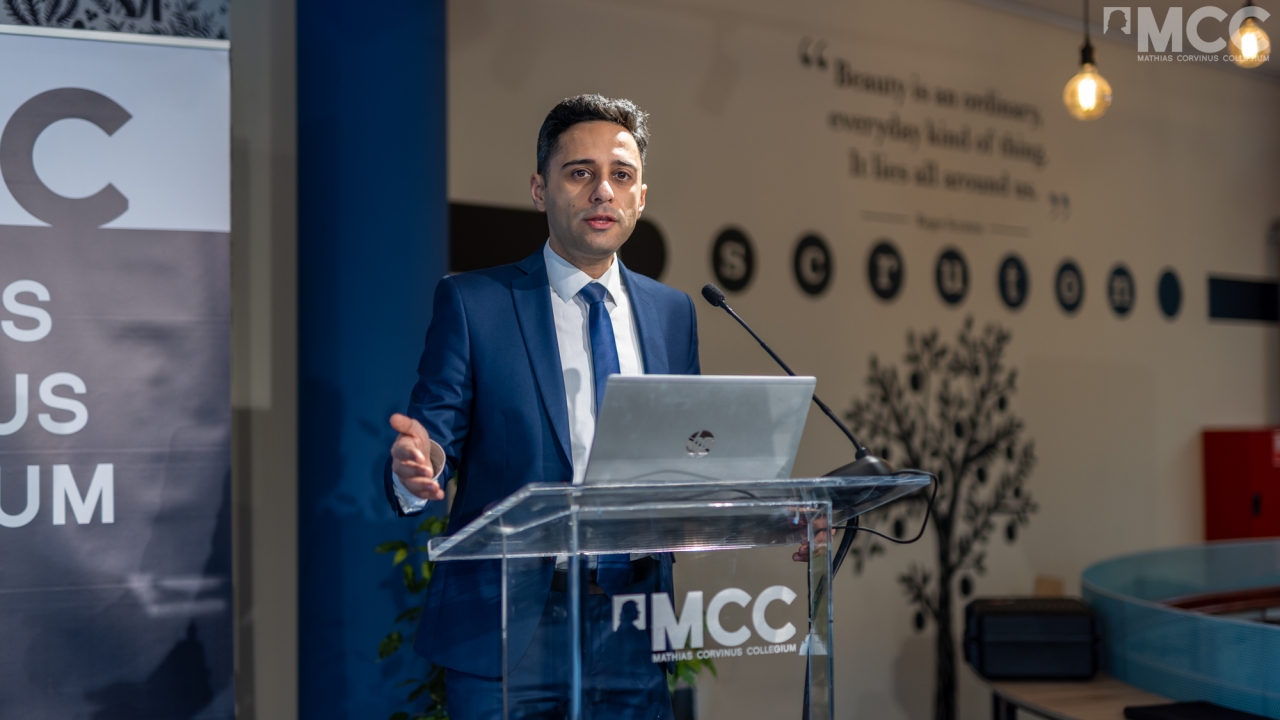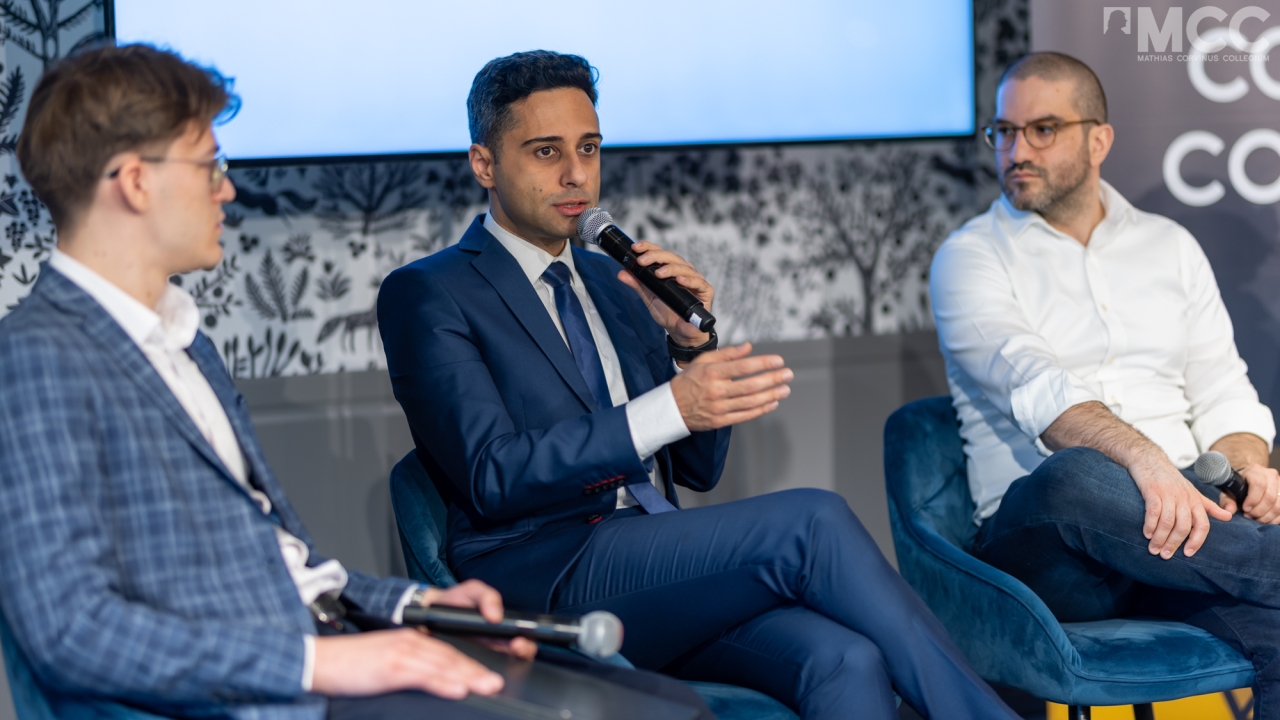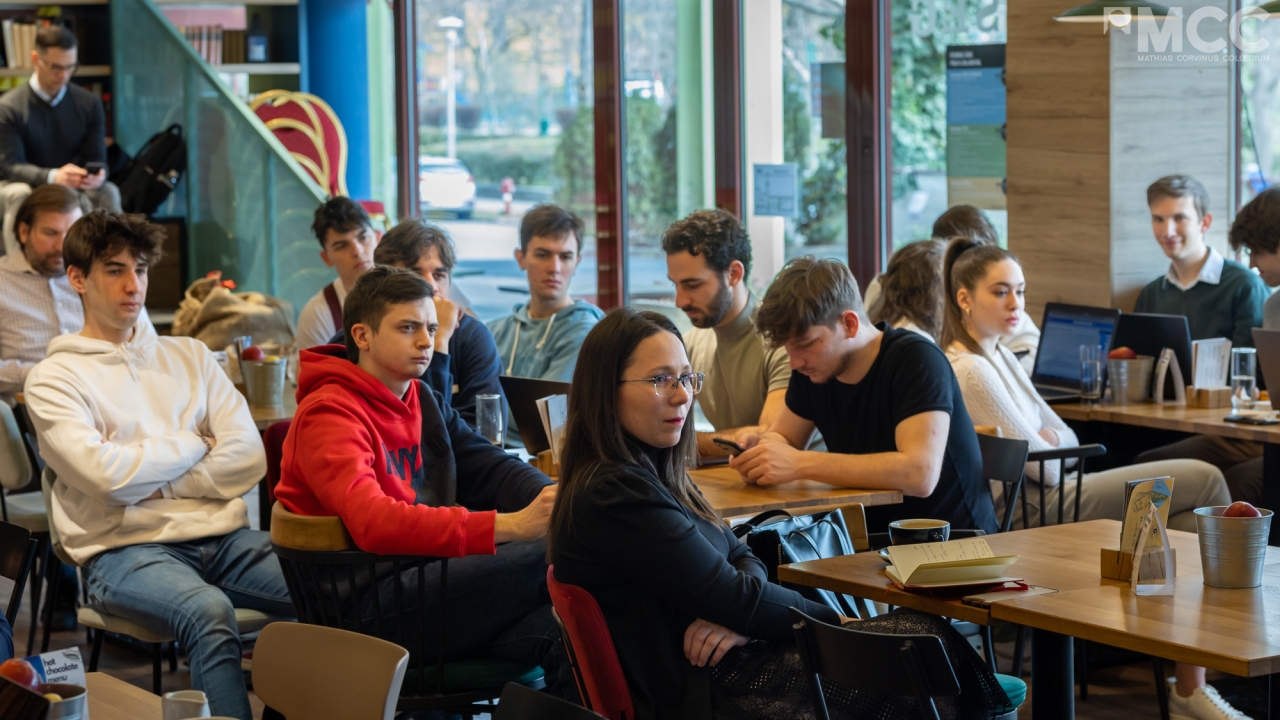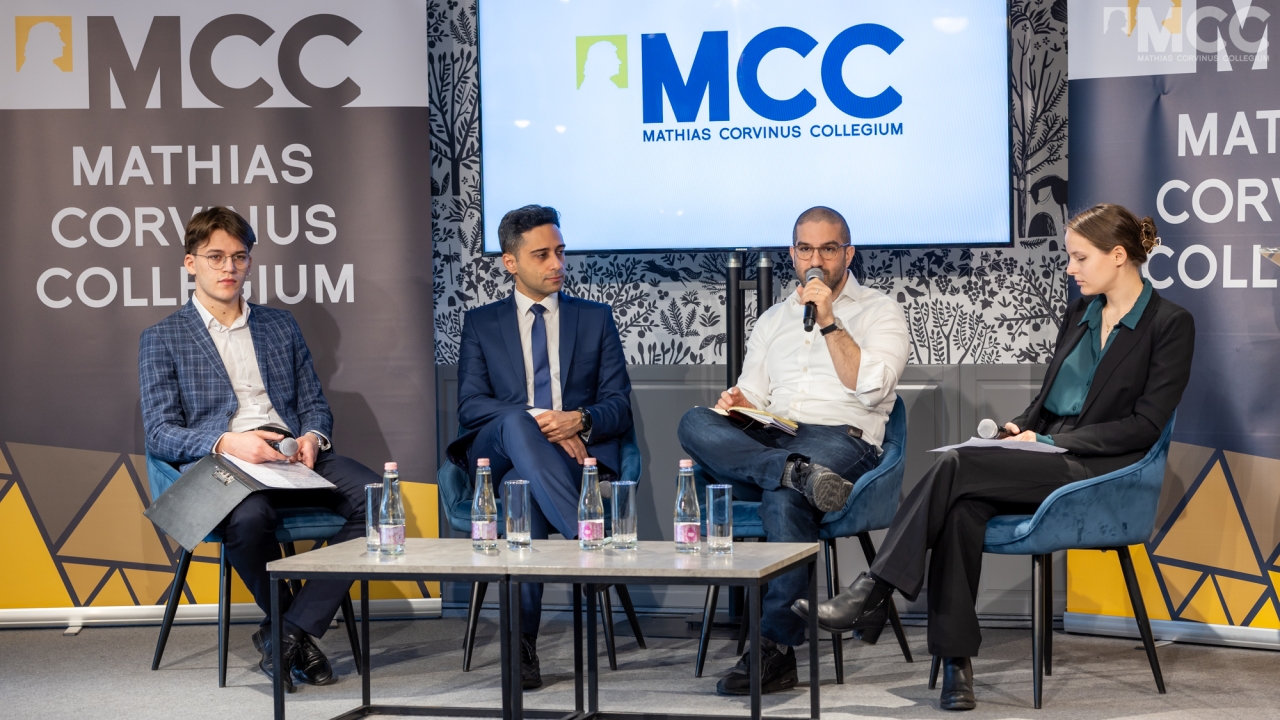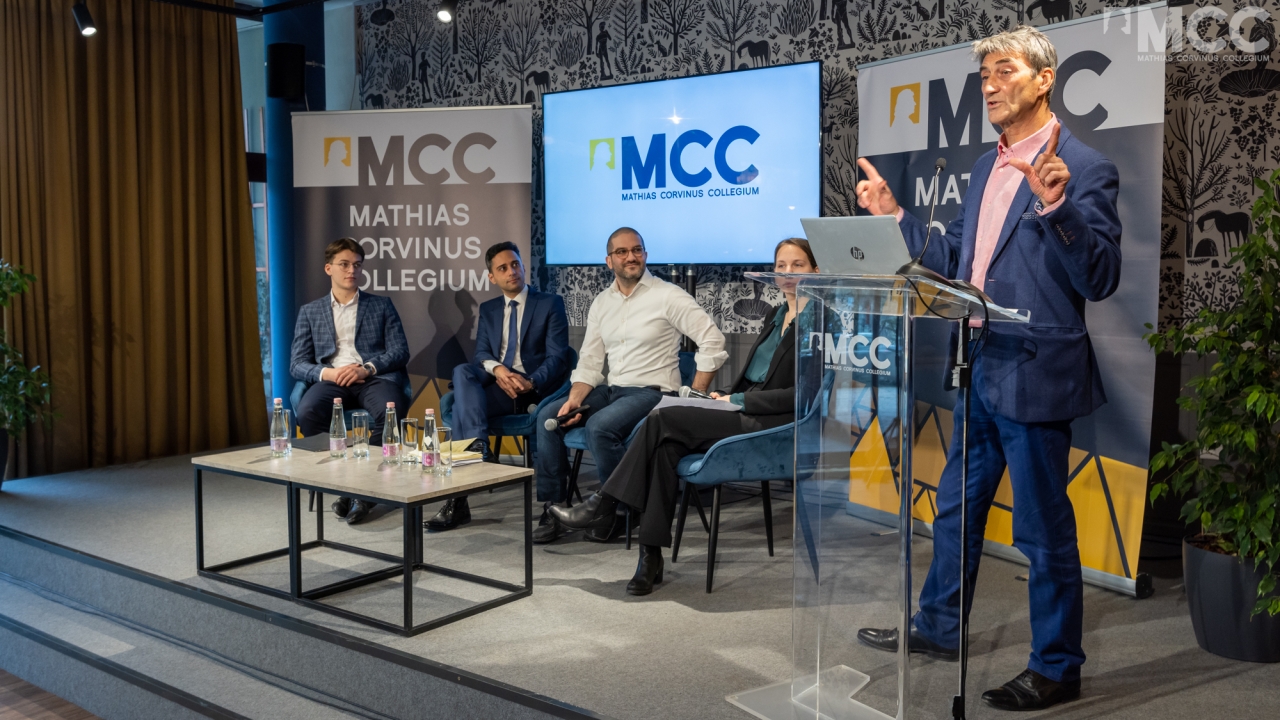Reading time: 3 minutes
There are 10 steps needed to build a successful startup ecosystem. This was the topic around which Ahmads keynote revolved at the Lunch Debate organised by the MCC's Technology Futures Workshop. Together with his discussion partner László Jónás, Head of Strategy at Design Terminal, they highlighted and discussed the most important of these 10 steps.
A growing problem with the rise of the startup world is the dilution of the quality of startup entrepreneurs and mentors in the sector. Anyone can start a company, go pitching, pretend to be a mentor, without any guarantee of the knowledge they possess. To address this, the discussion partners agreed that the players in the startup ecosystem need to be defined. Ahmad Piraiee proposed that the title ‘startuper’ or ‘mentor’ should be awarded by passing an exam, which would serve as a certificate of one's knowledge. They also stressed the importance of a system and a place where startupers can experiment. This is in effect a sandbox where they can try new ideas and fail without stake under the attention of mentors.
The role of the state was also a recurring theme, with the conclusion was that state support is essential, but that it is needed indirectly rather than directly. The link between the startup ecosystem and public funding should be built through non-profit organisations to make the process as smooth and efficient as possible. The role of young people is simply to contribute to the development of the startup world with good ideas and motivation. This is what we are lacking in Budapest, according to László Jónás, who pointed out during the discussion that it is not money that we are short of here, but students with good ideas who are starting businesses.
Ahmad Piraiee's 10 steps to create the startup ecosystem of the future are presented below:
- Establish a government-backed, non-profit organisation to act as a link between the country and the startup ecosystem
- define the startup ecosystem
- define the actors in the startup ecosystem by category
- Define a rating system for actors in the startup ecosystem
- Recognize start-ups as a class of companies
- Recognize actors in the startup ecosystem as a separate status of citizenship with a specific visa, tax and legal structure
- Create an open-source single market for startup ecosystem actors, powered by RL algorithms and automation rather than opinions and manual data entry
- Maintain an open-source single market online and off-line, practical and theoretical
- Create an open-source sandbox between the open source single market and the open market
- Update the definition of the actors in the startup ecosystem and startup ecosystem based on the results of the open source single market and to create new regulations through government supported non-profit organisations
written by Anna Káldy
